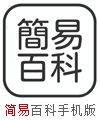
聪明的你,看到in the bus不到两秒,应该就能翻译它的意思:在车上!然而,地道的表达往往是会因为语言习惯和语境进行判断的。今天必叔就来说一下。

1
在车上
in the bus (✖)
on the bus (✔)
为什么in是错误的呢?
in是指在(某范围或空间内的某一点);在(某物的形体或范围)中;在...内;在...中;进入;一般是指进入某个空间内是无法走动的那种。(在里面不能站直身体使用in)
in a car 在小汽车上
in a boat 在小船上
in the taxi 在出租车上
on则是指覆盖、附着,在...上(意指接触物体或构成物体表面的一部分);由...支撑着;或者指运输工具。(在里面能站直身体是由on)
on a bus/on the bus 在公交上
on a/the train 在火车上
on a/the plane 在飞机上
2
on the house
在房子上 (✖)
免费、由店家出钱 (✔)
相信假如翻译on the house,90%以上的人第一反应想的是"在房子上",其实它和房子根本不挂钩。house是家,把帐算在店家的身上即免费,店家出钱、赠送。
This barbecued chicken is on the house.
这烧烤鸡是餐厅免费赠送的。
3
hold water
不漏水 (✖)
站得住脚、说得通 (✔)
hold water原意是"不让水漏出来",我们可以引申为"有说服力的、合情合理的",就是我们汉语常说的"站得住脚"。
This argument simply cannot hold water in Europe.
这个论点在欧洲根本就站不住脚。
4
eat for two
吃两份 (✖)
怀孕了 (✔)
如果一个女生说I'm eat for two,可别以为她很能吃,其实是两个人吃,也就是肚子里还有一个,表示"我怀孕了"。
I can’t drink the beer because I am eating for two right now.
我不能喝酒,因为我怀孕了。